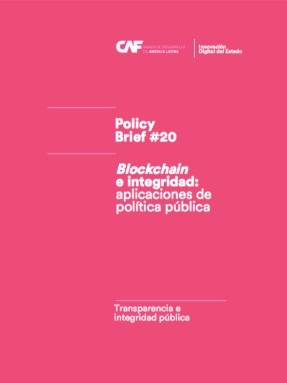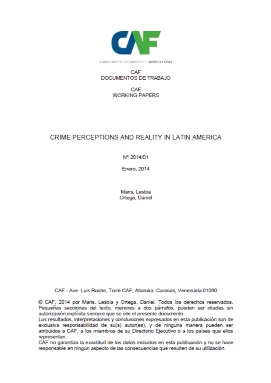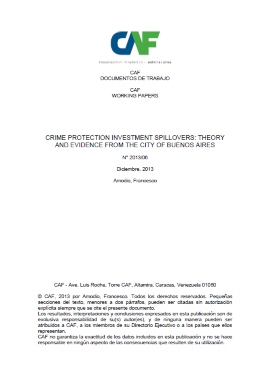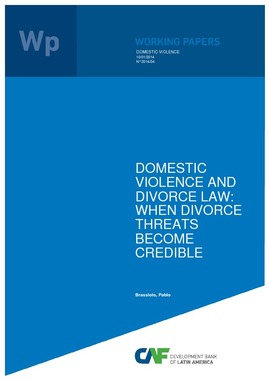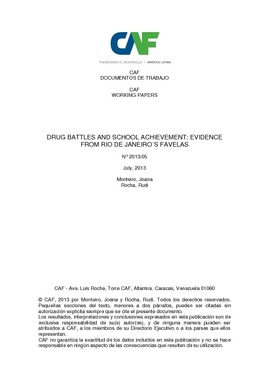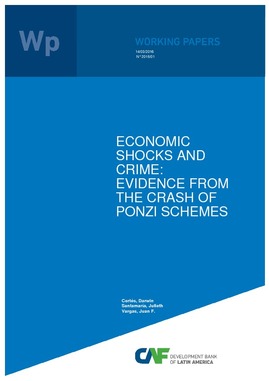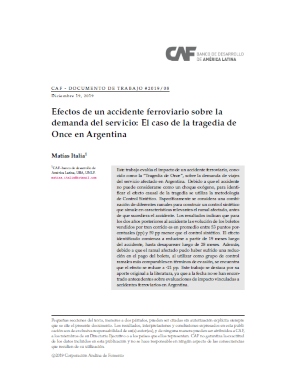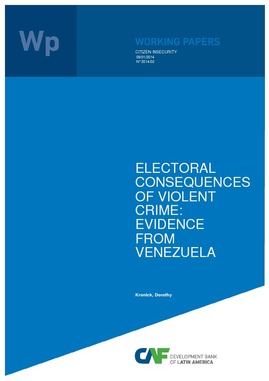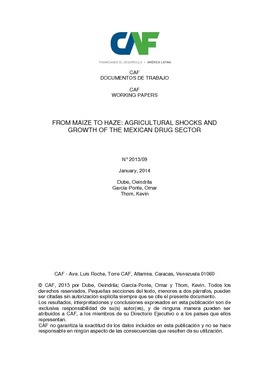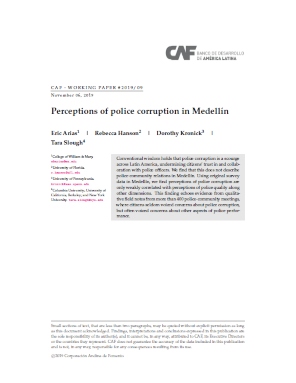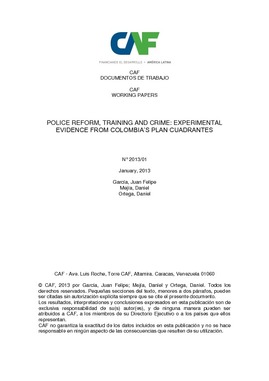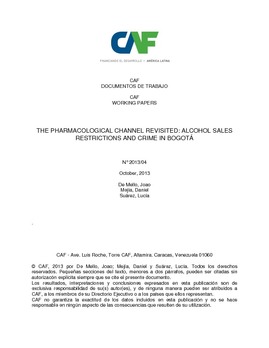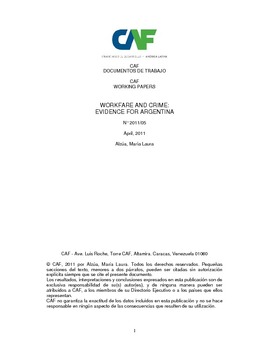Listar06. Documentos de trabajo por tema "Seguridad"
Mostrando ítems 1-16 de 16
-
Blockchain e integridad: aplicaciones de política pública
(CAF; Caracas, 2020-10-27)Este documento explica cómo la tecnología blockchain está desplegando un potencial importante para prevenir riesgos de corrupción, en especial con motivo de la crisis COVID-19. A partir de un análisis acerca del ... -
Crime Perceptions and Reality in Latin America
(CAF; Caracas, 2014)We show that perceptions of insecurity are strongly correlated with victimization at the individual level and suggest that the reason this relationship is usually not uncovered in simple cross country studies is that they ... -
Crime Protection Investment Spillovers: Theory and Evidence from the City of Buenos Aires
(CAF; Caracas, 2013)This paper studies spillover effects among potential crime victims from investment in observable protection technologies. Criminals and potential victims interact in a frictional market for offenses. Externalities within ... -
Domestic Violence and Divorce Law: When Divorce Threats Become Credible
(CAF; Caracas, 2014-10-01)This paper investigates whether lowering the cost of divorce can reduce domestic violence. The cost of divorce influences the bargaining position of spouses, and thus, their behavior within the marriage. This study takes ... -
Drug battles and school achievement: evidence from Rio de Janeiro's favelas
(CAF; Caracas, 2013)This paper examines the effects of armed conflicts between drug gangs in Rio de Janeiro's favelas on student achievement. To identify the causal effect of violence on education, we explore variation in violence that occurs ... -
Economic Shocks and Crime: Evidence from the Crash of Ponzi Schemes
(CAF; Caracas, 2016-03-14)In November 2008, Colombian authorities dismantled a network of Ponzi schemes, making hundreds of thousands of investors lose tens of millions of dollars throughout the country. Using original data on the geographical ... -
Efectos de un accidente ferroviario sobre la demanda del servicio: El caso de la tragedia de Once en Argentina
(CAF; Caracas, 2019-12-19)Este trabajo evalúa el impacto de un accidente ferroviario, conocido como la “Tragedia de Once”, sobre la demanda de viajes del servicio afectado en Argentina. Debido a que el accidente no puede considerarse como un choque ... -
Electoral Consequences of Violent Crime: Evidence from Venezuela
(CAF, 2014-05)To what extent to do voters hold political incumbents accountable for policy outcomes? This paper considers retrospective voting in the context of violent crime. Using a novel panel data set on county -and neighborhood- ... -
From maize to haze: agricultural shocks and growth of the mexican drug sector
(CAF; Caracas, 2013)We examine how commodity price shocks experienced by rural producers affect the drug trade in Mexico. Our analysis exploits exogenous movements in the Mexican maize price stemming from weather conditions in U.S. maize-growing ... -
Inequality, Crime, and the Long Run Legacy of Slavery
(CAF; Bogotá, 2016-12-25)This paper investigates the relationship between economic inequality and crime in Colombian municipalities. Following recent scholarly research that suggests that the legacy of slavery is largely manifest in persistent ... -
Perceptions of Police Corruption in Medellín
(CAF; Caracas, 2019-11-06)Conventional wisdom holds that police corruption is a scourge across Latin America, undermining citizens’ trust in and collaboration with police officers. We find that this does not describe police-community relations in ... -
Police reform, training and crime: experimental evidence from colombia's plan cuadrantes
(CAF; Caracas, 2013)The Plan Nacional de Vigilancia Comunitaria por Cuadrantes (PNVCC) is a new police patrolling program introduced in the eight major cities of Colombia in 2010 by the National Police. The strategy divides the largest cities ... -
Reglas fiscales para la recuperación en América Latina
(CAF; Caracas, 2021-09-07)La crisis económica derivada del COVID-19 profundizó los desbalances fiscales que algunos países de América Latina venían acumulando, ante la necesidad de asignar recursos para fortalecer los sistemas de salud, proteger ... -
Sistemas de salud e Inequidades en Salud en América Latina
(2023-12-20)El presente documento describe medidas de desigualdad en el acceso a la atención sanitaria y en los resultados de salud en países de América Latina, utilizando métricas estandarizadas introducidas en un estudio relacionado ... -
The pharmacological channel revisited: alcohol sales restrictions and crime in Bogotá
(CAF; Caracas, 2013)Our goal in this paper is twofold: First, evaluate the impact on crime of the restriction of latenight alcohol sales in Bogotá; and second, quantify the causal effect of problematic alcohol consumption on different crime ... -
Workfare and crime: evidence for Argentina
(CAF; Caracas, 2011)This paper investigates the effect of introducing a massive workfare program on property crimes. In order to circumvent the endogeneity problem common to joint factors determining crime and demand for workfare we make use ...


